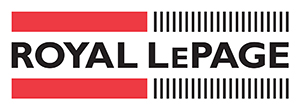
Glossary of Terms
Mortgage Terms
Amortization period: The actual number of years it will take to pay back your mortgage loan.
Appraised value: An estimate of the value of the property, conducted for the purpose of mortgage lending by a certified appraiser.
Assumability: Allows the buyer to take over the seller’s mortgage on the property.
Closed mortgage: A mortgage that locks you into a specific payment schedule. A penalty usually applies if you repay the loan in full before the end of a closed term.
Condominium fee: A payment among owners, which is allocated to pay expenses.
Conventional mortgage: A mortgage loan issued for up to 75% of the property’s appraised value or purchase price, whichever is less.
Down payment: The buyer’s cash payment toward the property that is the difference between the purchase price and the amount of the mortgage loan.
Equity: The difference between the home’s selling value and the debts against it.
High-ratio mortgage: A mortgage that exceeds 75% of the home’s appraised value. These mortgages must be insured for payment.
Interest rate: The value charged by the lender for the use of the lender’s money, expressed as a percentage.
Land transfer tax, deed tax or property purchase tax: A fee paid to the municipal and/or provincial government for the transferring of property from seller to buyer.
Maturity date: The end of the term of the loan, at which time you can pay off the mortgage or renew it.
Mortgagee: The financial institution or person that lends the money.
Mortgage insurance: Applies to high-ratio mortgages. It protects the lender against loss if the borrower is unable to repay the mortgage.
Mortgage life insurance: Pays off the mortgage if the borrower dies.
Mortgagor: The borrower.
Open mortgage: Allows partial or full payment of the principal at any time, without penalty.
Portability: A mortgage option that enables borrowers to take their current mortgage with them to another property, without penalty.
Pre-approved mortgage: Qualifies you for a mortgage before you start shopping. You know exactly how much you can spend and are free to make a firm offer when you find the right home.
Prepayment privileges: Voluntary payments that are in addition to regular mortgage payments.
Principal: The amount borrowed or still owing on a mortgage loan. Interest is paid on the principal amount.
Refinancing: Paying off the existing mortgage and arranging a new one or renegotiating the terms and conditions of an existing mortgage.
Renewal: Renegotiation of a mortgage loan at the end of a term for a new term.
Second mortgage: Additional financing, which usually has a shorter term and a higher interest rate than the first mortgage.
Term: The length of time the interest rate is fixed. It also indicates when the principal balance becomes due and payable to the lender.
Title: Legal ownership in a property.
Variable rate mortgage: A mortgage with fixed payments that fluctuates with interest rates. The changing interest rate determines how much of the payment goes towards the principal.
Vendor take-back mortgage: When the seller provides some or all of the mortgage financing in order to sell their property.

